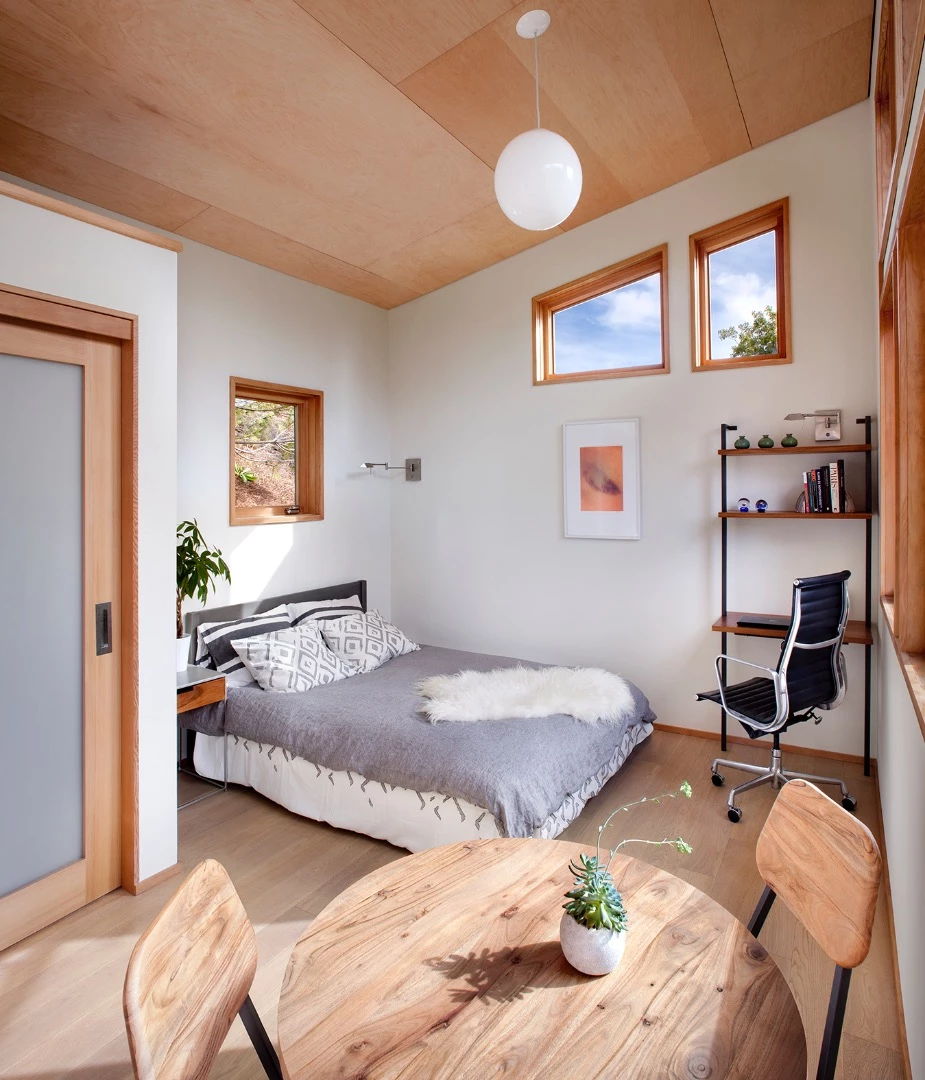San Francisco-based prefab firm Avava Systems recently unveiled its debut micro-home, the Britespace. Available in multiple sizes and configurations, the diminutive dwelling can operate on or off-the-grid and boasts an attractive high-end finish. It commands a high-end price to match though, with prices starting at US$90,000 and rising all the way up to $184,000, not including installation.
Though you might expect a micro-home to come with a similarly tiny price, we have seen a growing number of luxury micro-homes and towable tiny homes around the $100,000 price point and above lately, like the Koda and Alpha, for example.
The Britespace is offered in three basic variations, with the names reflecting each home's measurements in square feet: Model 264, Model 352 and Model 480 (24, 32 and 44 m2 respectively). Shipping in flatpack form, it can be assembled and ready in around six weeks. The model pictured is installed in a garden in Livermore, CA and will serve as a retirement home.
Structurally, it comprises a foundation and SIPs (structurally insulated panels), fitted into Avava Systems' patented framing system. Various finishes are available, but the exterior of the model pictured features stucco and weather-resistant hardwood siding. The roof is seam metal and the deck is optional.

The interior layout for each model is similar and boasts generous glazing. A large open living area contains the lounge, dining area, kitchenette and a sleeping area, in addition to a closet and other storage. A door provides access to the snug bathroom, which includes a shower, toilet, and sink.
The interior is finished in high-end materials including solid bamboo and maple cabinetry and oak flooring (the furniture pictured isn't included in the price).
Available off-grid tech includes a rainwater collection system and grey water system, a roof-based solar hot water system and solar panels. Either a Trojan battery pack or a Tesla Powerwall is used to store the electricity, and the home is heated and cooled with a mini-split heat pump.
In addition to a full-time home, the Britespace can also serve as an office or guest house, studio, or extra bedroom.
Source: Avava Systems








